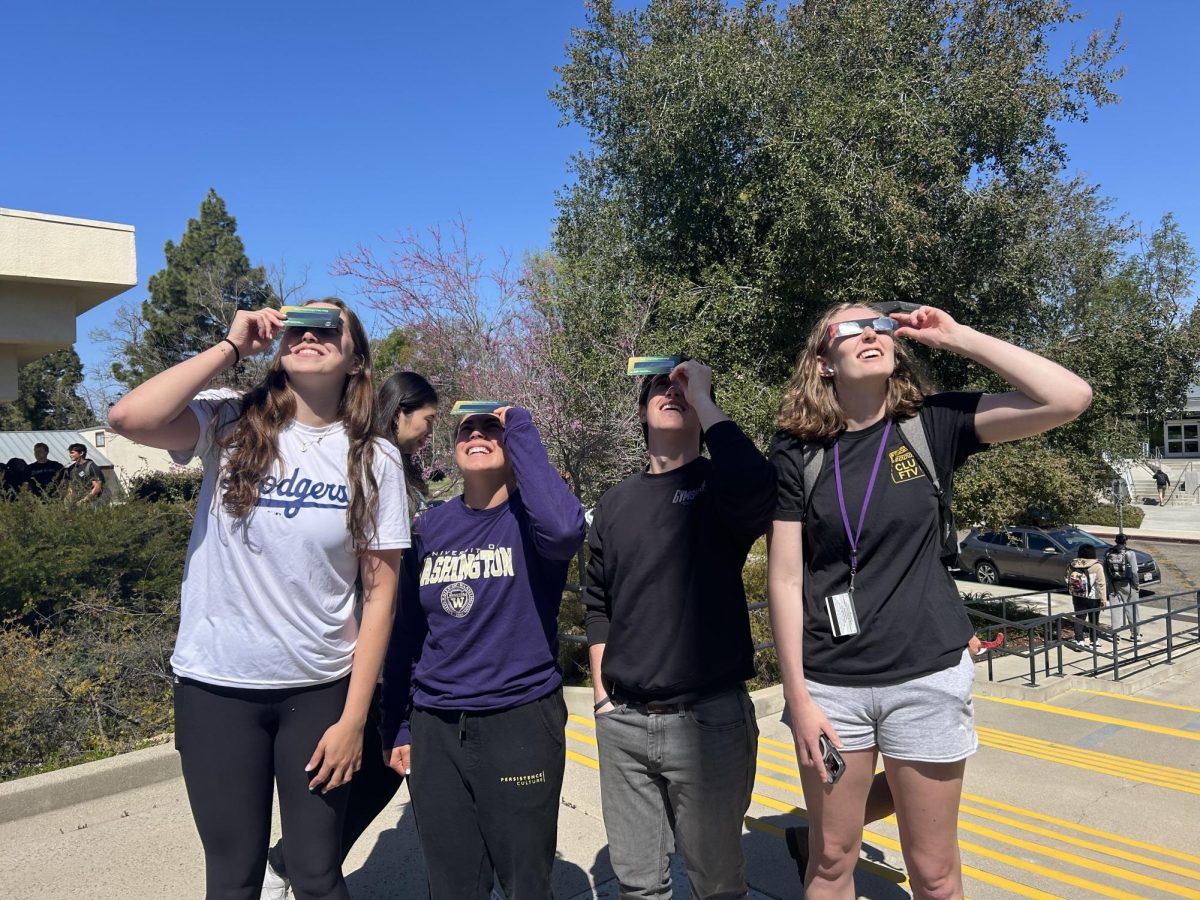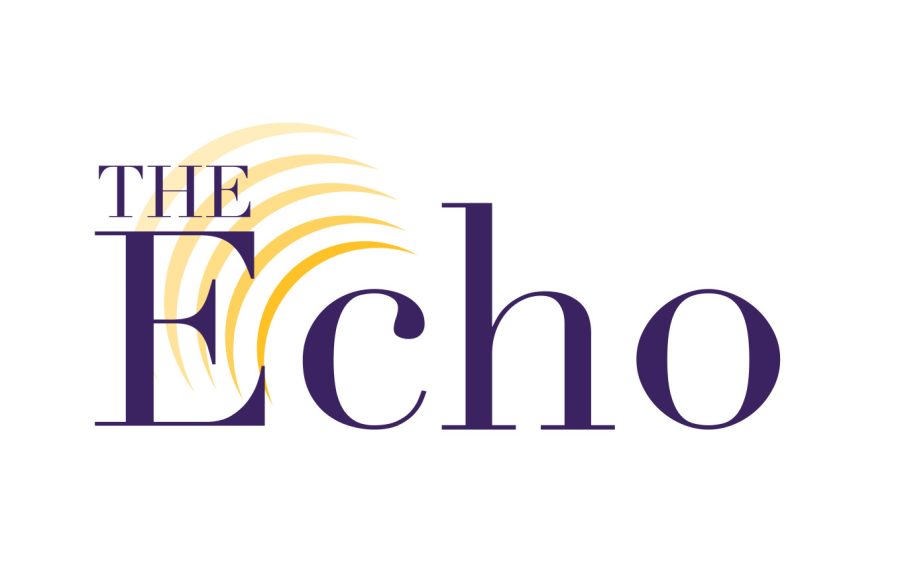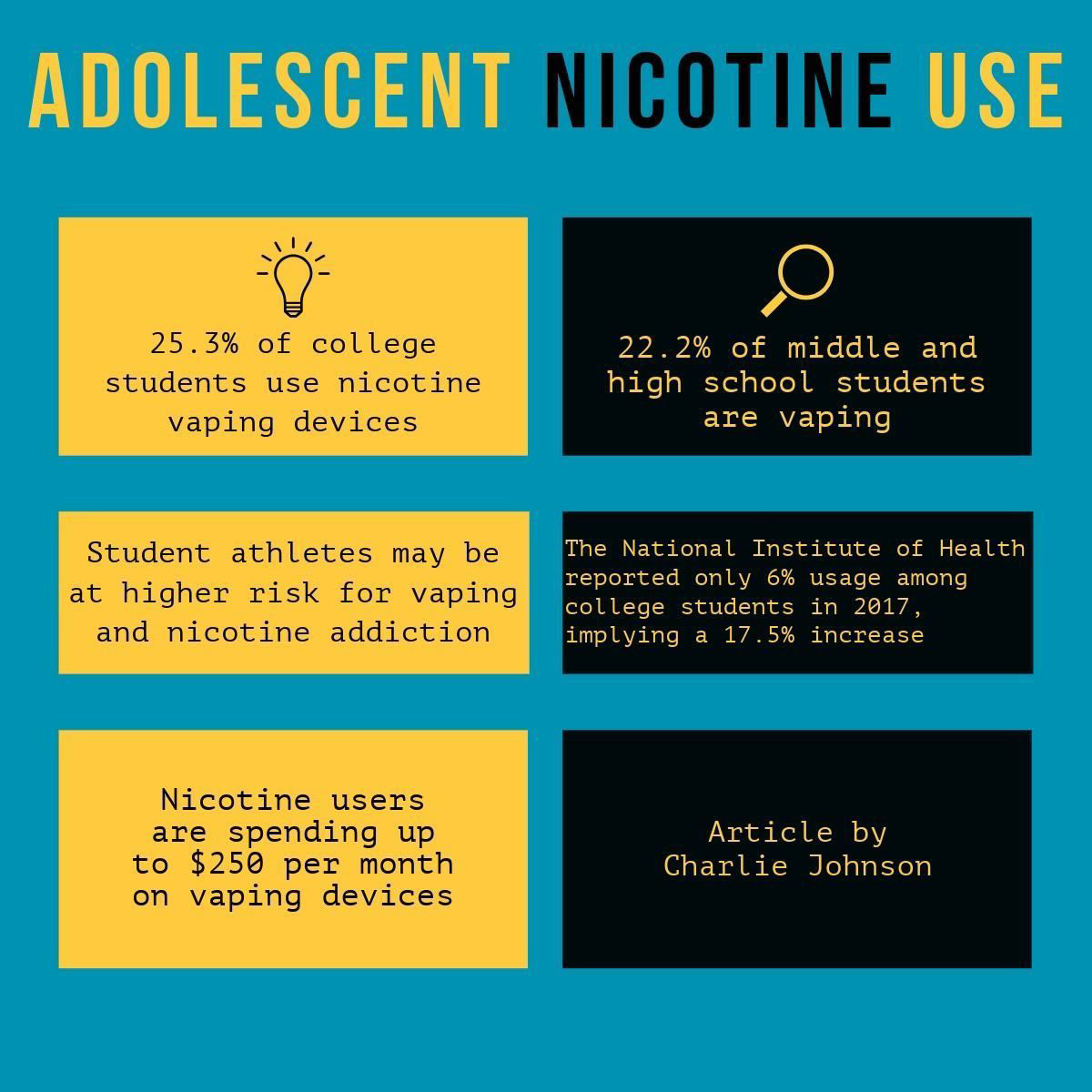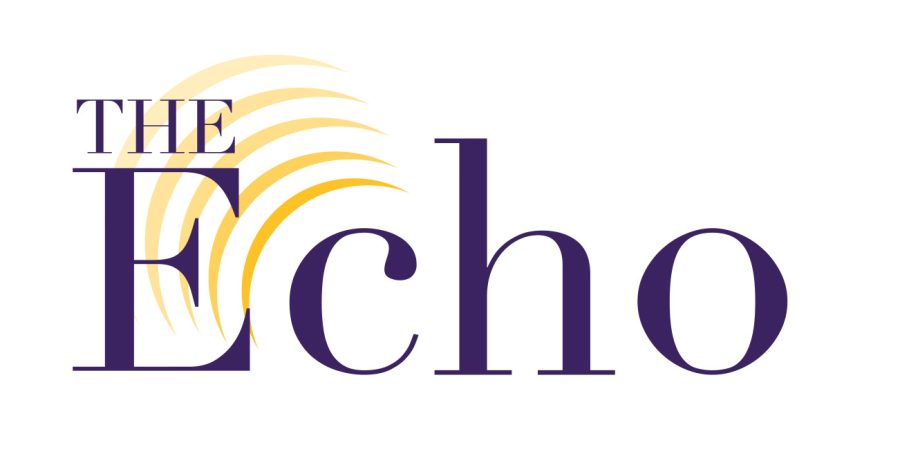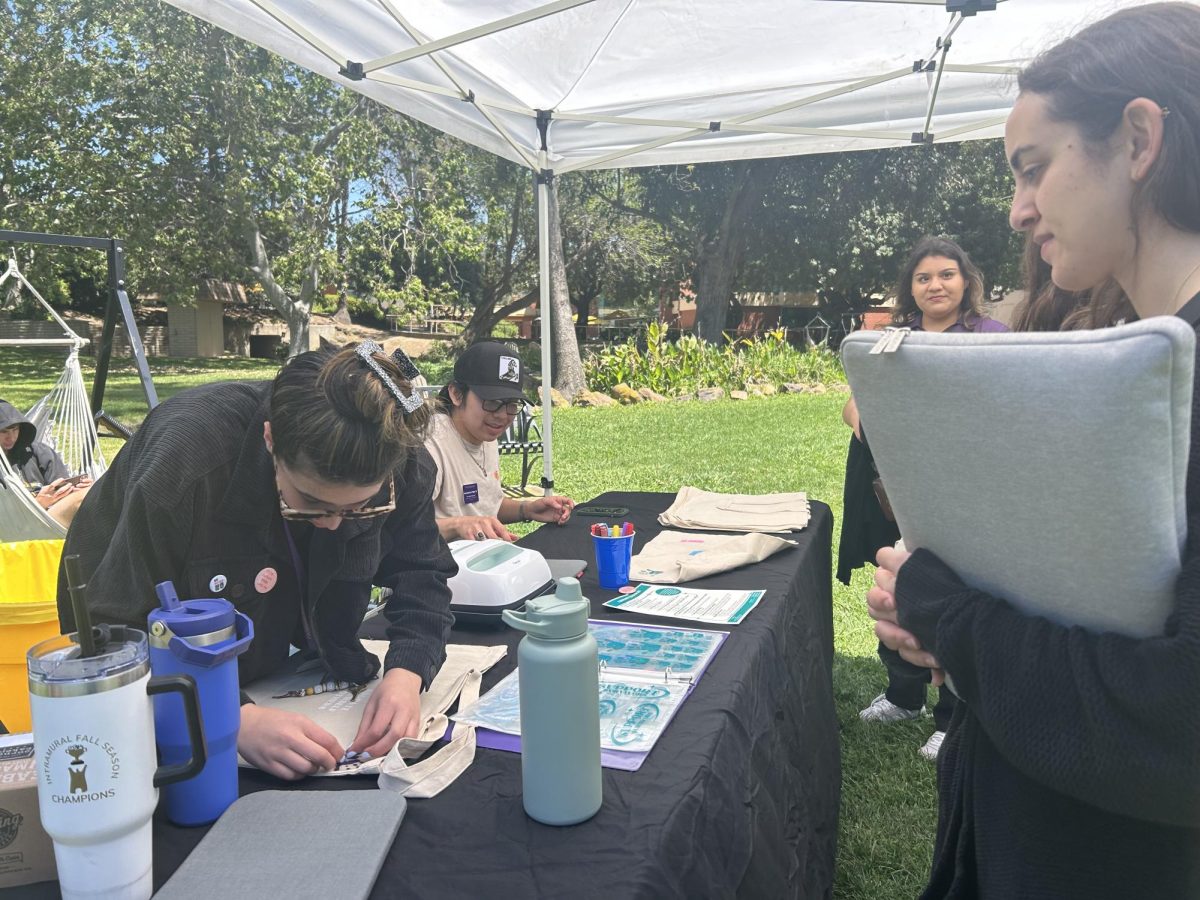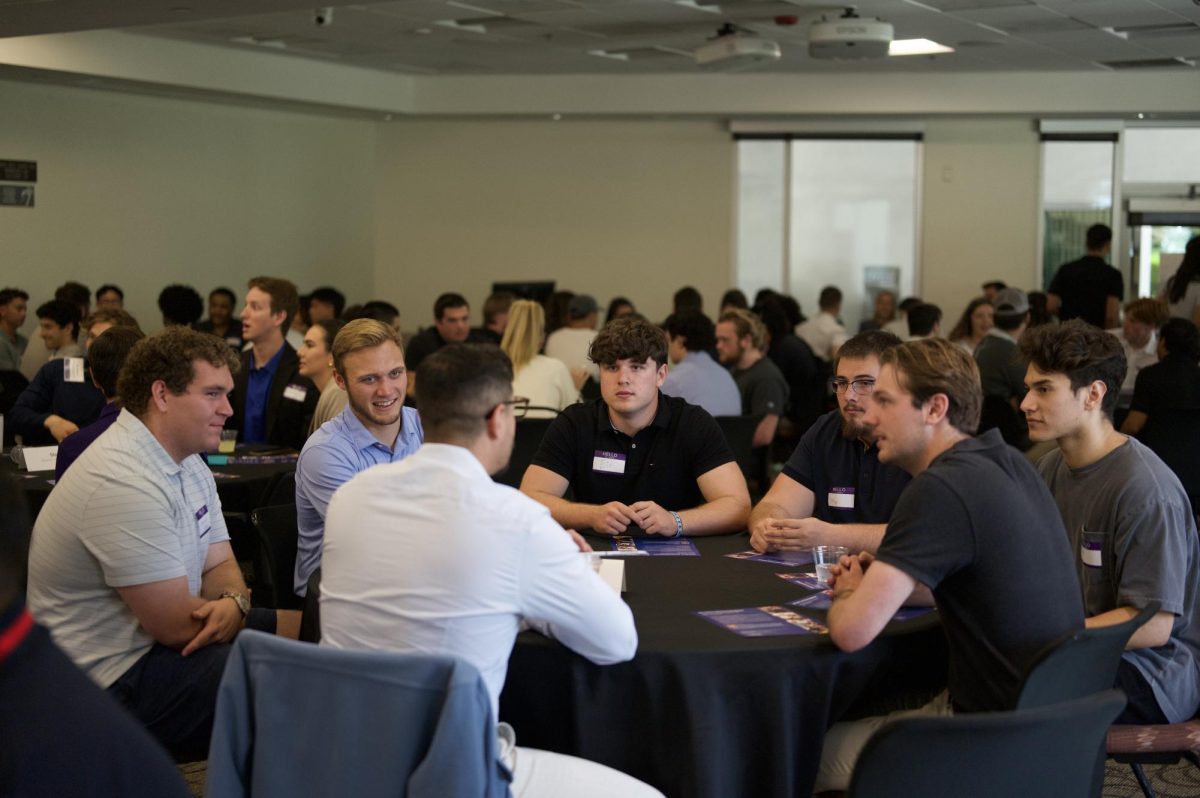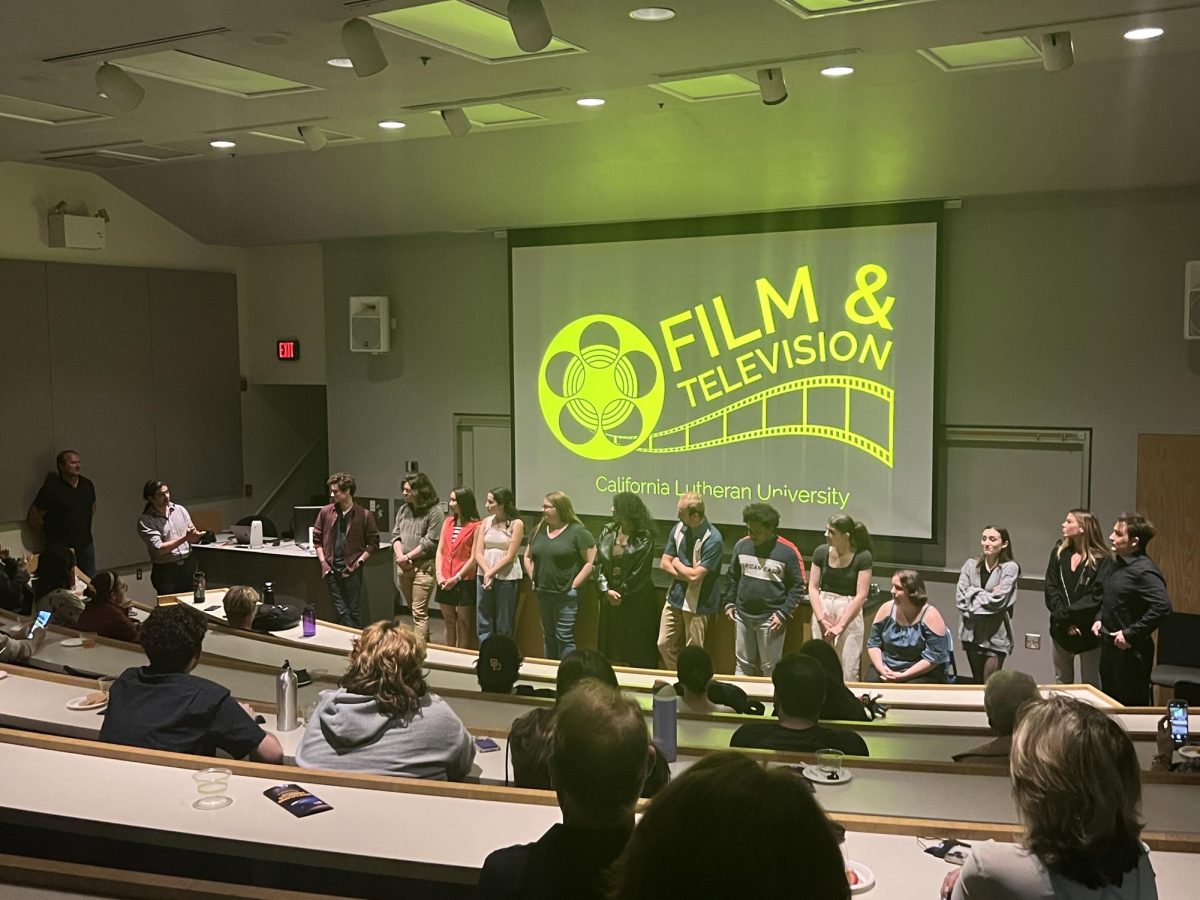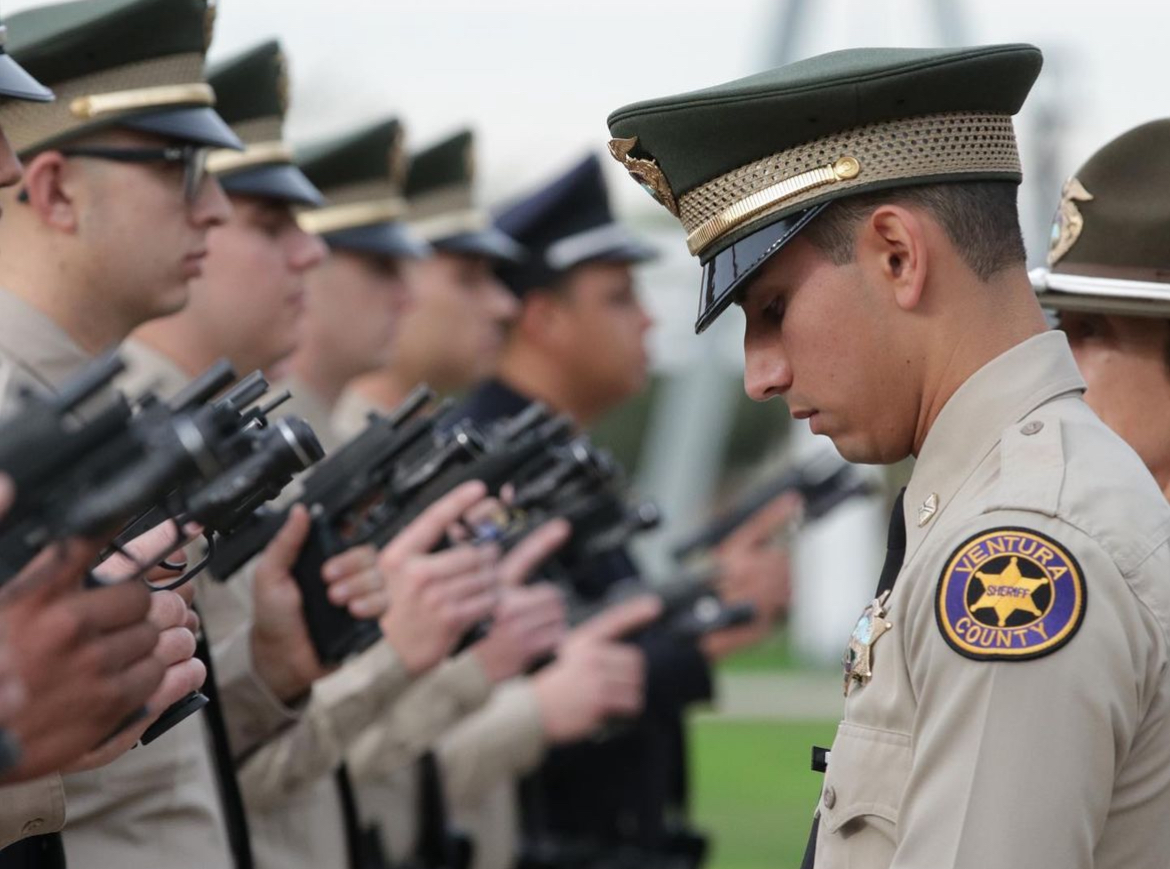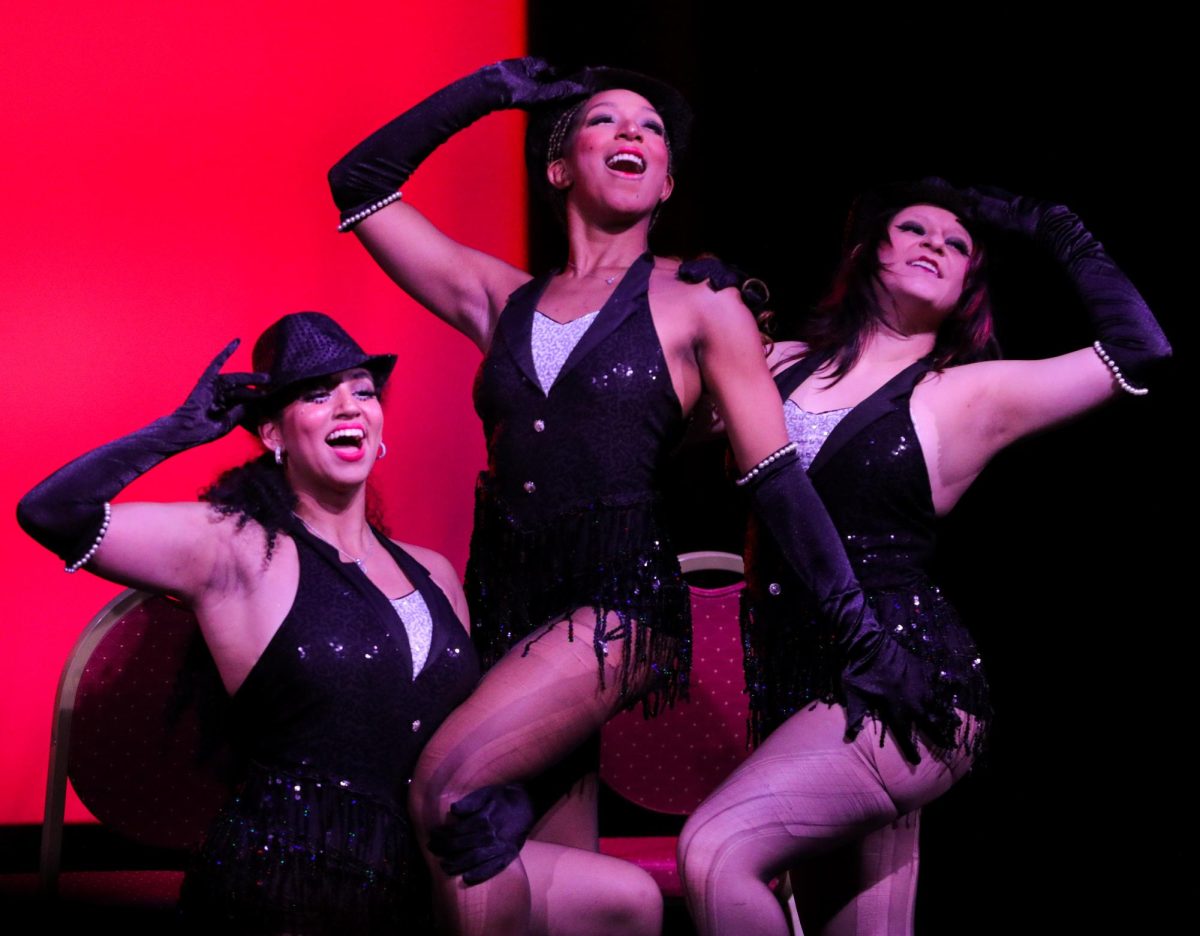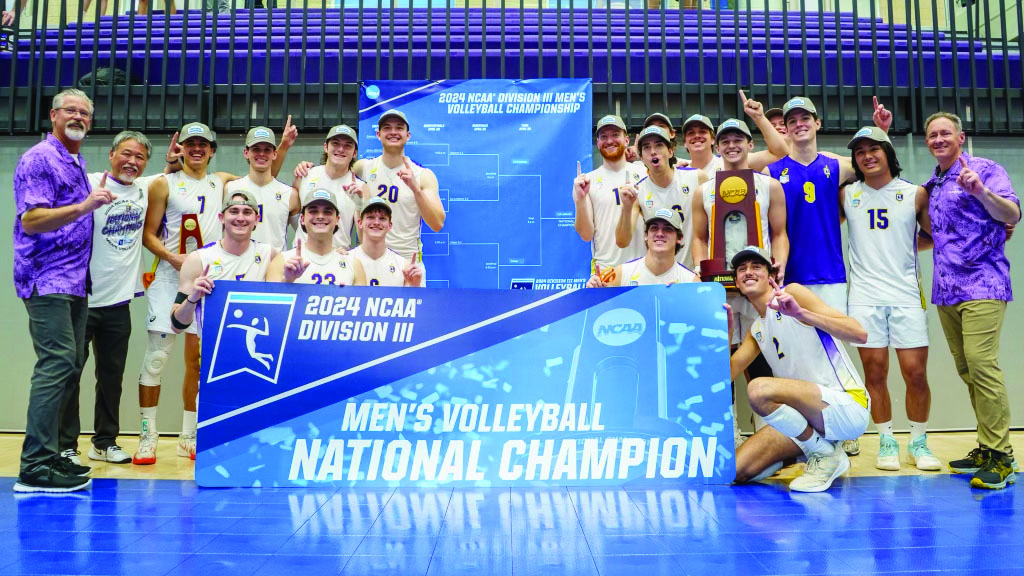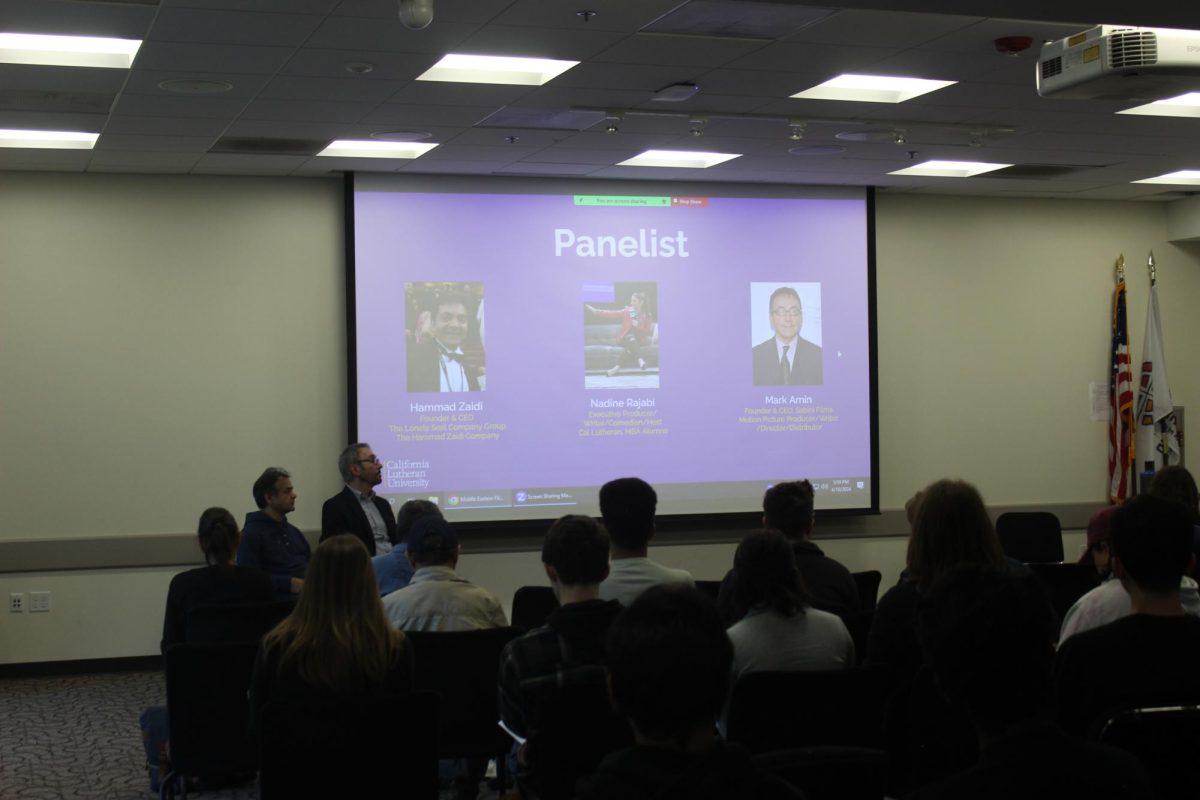On Monday, April 8, California Lutheran University’s Physics Club hosted a solar eclipse watch party, which gathered a community of students, professors, and local residents to watch the peak of the eclipse at 11:11 a.m.
Associate Professor of Physics and Club Advisor for Physics Club Mary Oksala said the club started setting up at 9 a.m. Monday morning and had a large number of people gathered as the time of the peak approached.
“It was overwhelming how many people came out and wanted to experience it and learn about it,” Oksala said. “To me, that’s why I do this job. It’s ‘cause I want students and people to learn and just appreciate how cool space and astronomy can be. I was very overwhelmed by the amount of people that came out and were so enthusiastic about it, so that was just super amazing for me.”
Physics Club set up two telescopes pointed toward the sun so individuals could see the progression of the solar eclipse. Oksala said the club also provided around 200 solar eclipse glasses and solar filters for observers to borrow during the event.
“Just to hear people as they were looking in the telescope to see it and they were just audibly like, ‘Oh my gosh,’” Oksala said. “That’s the best for me because that’s the moment where you are changing the way someone sees something that they’ve been under their whole lives, but now they’re seeing it in this totally different way.”
According to Space.com, “During a total solar eclipse, the moon appears almost exactly the same size as the sun, so it blocks the entire disk for a few minutes. The result is a beautiful totality during which the sun’s corona is visible to the naked eye.”
Solar eclipse glasses and filters, according to Space.com, are heavily encouraged to be worn during the progression of the eclipse to protect one’s eyes from serious or long-term damage.
Oksala said that because the glasses are reusable, she will be collecting the remaining solar glasses and filters from the event and giving them a second life by donating them to Astronomers Without Borders. This organization has been active since 2008 and collects and donates these items for students in areas that normally would not have access to them.
Alongside other club members, sophomore and Secretary of Physics Club Sanket Jadhav assisted at the event by tabling on the spine which offered themed and free stickers and candies to attendees.
“For me, that was probably the first time ever watching an eclipse,” Jadhav said. “It gives you a sense of closeness to other people on campus so you share that in common, which is a cool thing.”
Other students who attended have shared that this was also their first eclipse like sophomores Yarely Orozco and Tori Ruiz, who said their professor brought them out to watch the eclipse.
“I think it’s nice how we take our time out of our day just to look at how the world works. It’s pretty cool ‘cause I’ve never really ever seen the eclipse and I think it’ll be interesting to see how time passes as it’s moving. It’s a really good experience to see with like other peers,” Orozco said.
“We’re both education majors here and I feel like this is good for education majors to see ‘cause it’s just little things that one day we can probably do with our students. It’s little things like this, the science, the fun of it, the hands-on. That’s what it’s all about,” Ruiz said.
President of Physics Club Leah Derrick said the solar eclipse watch party has shown an impact on the community.
“With everyone who showed up for the eclipse watch party, it was really cool and special that ‘Yes, people don’t care about science and physics things,’” Derrick said.
According to Space.com, though there has been speculation that the next total solar eclipse to be seen in the U.S. will not be until 2044, there will be another visible total solar eclipse in remote regions of Alaska on March 30, 2033. The next eclipse visible in California will not be until 2045.
Derrick says that other events that Physics Club hosts include game nights and movie nights that are usually physics and sci-fi related.
“[The eclipse] was the highlight of this semester for the Physics club…This is definitely on the list of the coolest that we’ve ever done. This is definitely in the top two and it’s competing right up there with stargazing,” Jadhav said.
Jadhav said that Physics club also hosts stargazing nights where they are able to take out the telescopes and view the planets and constellations in the sky.
Oksala, Jadhav, and Derrick encourage students who have an interest in astronomy, space, physics, or just want to have a fun time, to come and talk to them.
“Even if you think it’s scary, you can still come to our club and our events and just have fun and learn about science. I think some people get scared away by the complicated math that sometimes we have to do,” Derrick said. “But you could still come to the club and learn some fun things about science. We can do it in a way that isn’t geared towards mathematics.”



